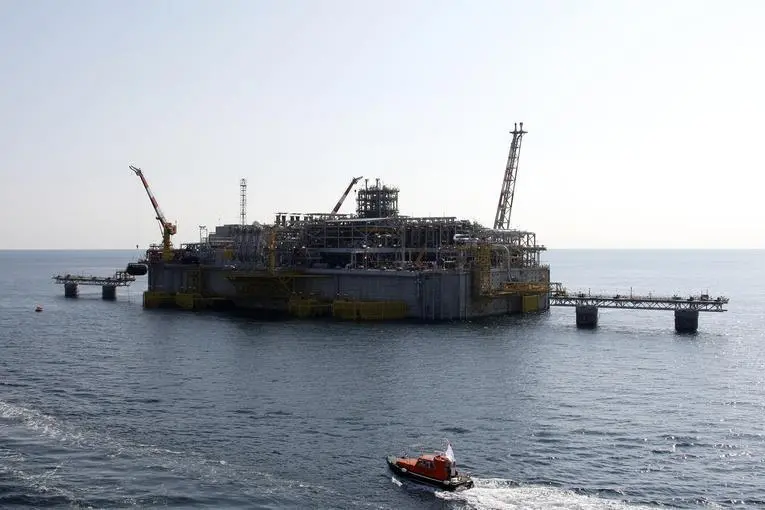PHOTO
* High demand from Korea Gas Corp partly to blame
* Disruptions lift British prompt gas prices
* Traders deal with volatile markets, winter approach
By Oleg Vukmanovic
MILAN, Oct 5 (Reuters) - Britain's top sea-borne gas supplier Qatar has stopped sending new shipments for several weeks as restocking demand from long-standing customer South Korea drains supply.
The drought underscores the precariousness of Britain's access to liquefied natural gas (LNG) supplies from the world's biggest producer at a time when UK gas traders deal with volatile markets and the approach of peak winter demand.
But tanker overcrowding outside Argentinian import terminals and Trinidad and Tobago's export facility, plus potentially maturing demand in South Korea, may help bring relief to Britain in the near future, analysts and industry sources say.
The UK, a net gas exporter until 2004, has become increasingly dependent on piped imports from Norway and Europe and LNG from Qatar as its own production from the North Sea has declined rapidly over the last decade.
Dwindling LNG shipments are partly responsible for British prompt gas prices
Unlike Qatar's long-term deals with its Asian and some European customers, regular deliveries to Britain are not contractually guaranteed and in many cases cargoes can be diverted at will to better-priced markets.
The last tanker to unload in Britain was the Aamira, which sailed from Qatar's port of Ras Laffan on Sept. 4 and arrived early last week at the South Hook terminal in Wales.
It is possible that two Qatari tankers - the Rasheeda and Mozah - could go to Britain, analysts say, but they are still one and two weeks away from UK ports, respectively. No ships are yet officially indicating that they are heading to Britain.
Qatargas, the world's biggest LNG producer, did not return requests for comment.
Disruptions come at a particularly bad time as Britain's transmission system struggles to manage frequent imbalances in supply and demand after the shutdown of the country's largest gas storage facility, Rough, in June.
Price volatility this summer has hit multi-year highs, and with the start of the winter gas season on Oct. 1 traders are watchful of new setbacks.
KOREAN DEMAND
Unexpectedly high demand from Korea Gas Corp (KOGAS) is largely to blame for Qatar's dwindling deliveries to Europe, one LNG analyst at a trading firm said. Increased Indian demand may also be a factor.
"(KOGAS) have already done a lot of the work in bringing their LNG inventories back to comfortable levels and with milder weather in the Far East this could ease requirements," he said.
The analyst added that KOGAS inventories are now around 25 percent, or around 1-1.5 billion cubic metres of gas, below normal levels, a figure Reuters could not confirm.
Qatari output continues to outperform last year levels, with September exports up at 6.9 million tonnes (mt) versus 6.65 mt in the year ago period, according to independent LNG consultant Andy Flower.
(Reporting by Oleg Vukmanovic) ((Oleg.Vukmanovic@thomsonreuters.com; 00 39 348 7607154; Reuters Messaging: oleg.vukmanovic.thomsonreuters.com@reuters.net))
* Disruptions lift British prompt gas prices
* Traders deal with volatile markets, winter approach
By Oleg Vukmanovic
MILAN, Oct 5 (Reuters) - Britain's top sea-borne gas supplier Qatar has stopped sending new shipments for several weeks as restocking demand from long-standing customer South Korea drains supply.
The drought underscores the precariousness of Britain's access to liquefied natural gas (LNG) supplies from the world's biggest producer at a time when UK gas traders deal with volatile markets and the approach of peak winter demand.
But tanker overcrowding outside Argentinian import terminals and Trinidad and Tobago's export facility, plus potentially maturing demand in South Korea, may help bring relief to Britain in the near future, analysts and industry sources say.
The UK, a net gas exporter until 2004, has become increasingly dependent on piped imports from Norway and Europe and LNG from Qatar as its own production from the North Sea has declined rapidly over the last decade.
Dwindling LNG shipments are partly responsible for British prompt gas prices
Unlike Qatar's long-term deals with its Asian and some European customers, regular deliveries to Britain are not contractually guaranteed and in many cases cargoes can be diverted at will to better-priced markets.
The last tanker to unload in Britain was the Aamira, which sailed from Qatar's port of Ras Laffan on Sept. 4 and arrived early last week at the South Hook terminal in Wales.
It is possible that two Qatari tankers - the Rasheeda and Mozah - could go to Britain, analysts say, but they are still one and two weeks away from UK ports, respectively. No ships are yet officially indicating that they are heading to Britain.
Qatargas, the world's biggest LNG producer, did not return requests for comment.
Disruptions come at a particularly bad time as Britain's transmission system struggles to manage frequent imbalances in supply and demand after the shutdown of the country's largest gas storage facility, Rough, in June.
Price volatility this summer has hit multi-year highs, and with the start of the winter gas season on Oct. 1 traders are watchful of new setbacks.
KOREAN DEMAND
Unexpectedly high demand from Korea Gas Corp (KOGAS) is largely to blame for Qatar's dwindling deliveries to Europe, one LNG analyst at a trading firm said. Increased Indian demand may also be a factor.
"(KOGAS) have already done a lot of the work in bringing their LNG inventories back to comfortable levels and with milder weather in the Far East this could ease requirements," he said.
The analyst added that KOGAS inventories are now around 25 percent, or around 1-1.5 billion cubic metres of gas, below normal levels, a figure Reuters could not confirm.
Qatari output continues to outperform last year levels, with September exports up at 6.9 million tonnes (mt) versus 6.65 mt in the year ago period, according to independent LNG consultant Andy Flower.
(Reporting by Oleg Vukmanovic) ((Oleg.Vukmanovic@thomsonreuters.com; 00 39 348 7607154; Reuters Messaging: oleg.vukmanovic.thomsonreuters.com@reuters.net))





















